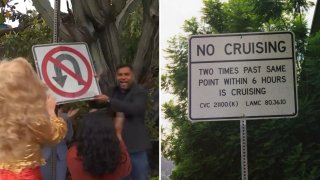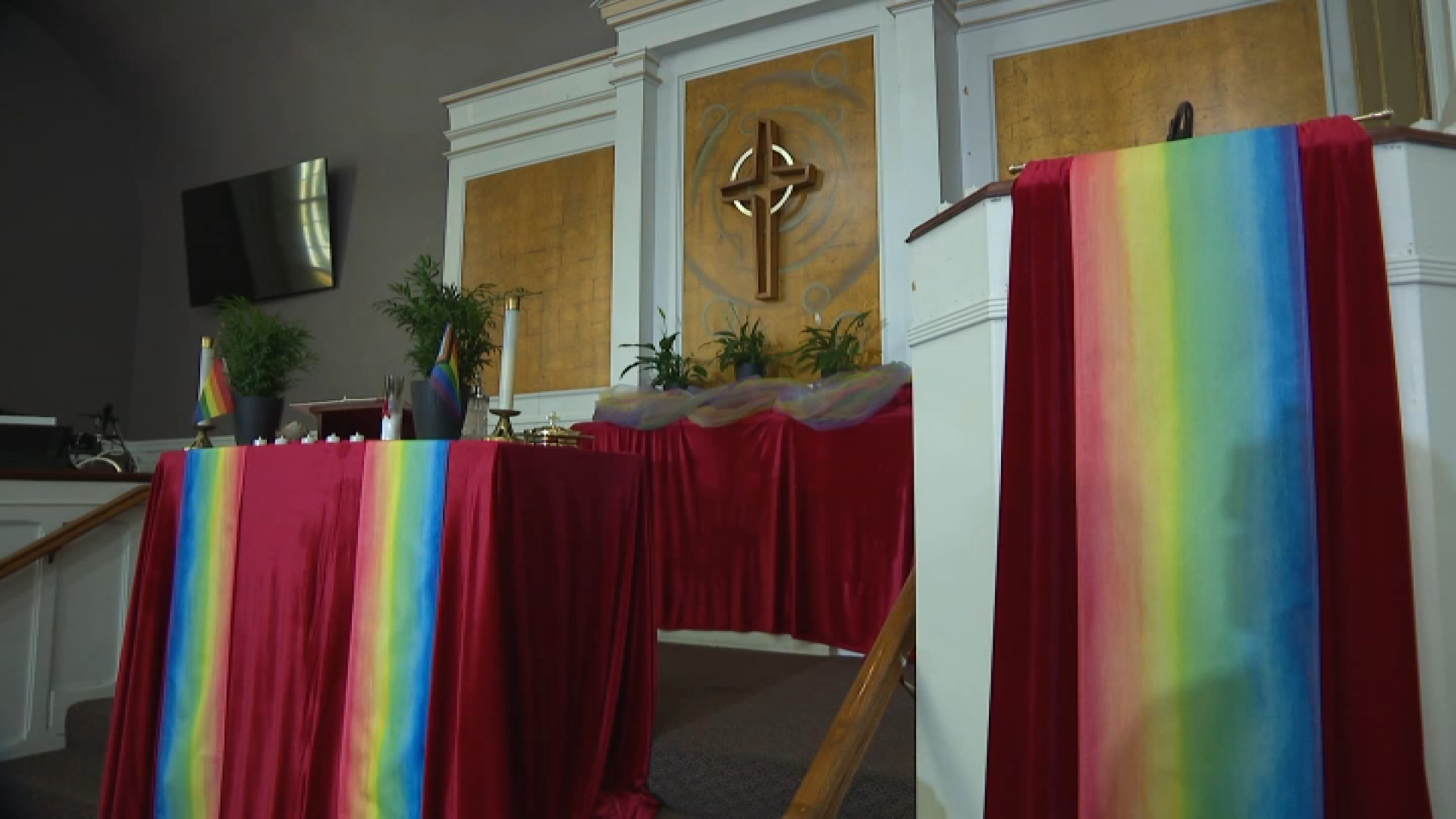
Street signs that officials said previously targeted LGBTQ community members were taken down from a Silver Lake neighborhood Monday.
The signs that read “No Cruising” and prohibited U-turns were installed in 1997 when neighbors complained about gay men hanging out and looking for dates in certain residential areas close to popular gay bars.
While the “No Cruising” signs were removed after the Silver Lake Neighborhood Council voted to dismantle them in 2011, some of the no U-turn signs remained.
Los Angeles City Councilmember Nithya Raman, whose district includes a portion of Silver Lake, said she learned about the remaining signs from a resident who listened to a podcast.
Get top local stories in Southern California delivered to you every morning. >Sign up for NBC LA's News Headlines newsletter.
“The podcast mentioned that there had been “No Cruising” signs along Hyperion that had been removed in 2011, but that nine signs still remained on Griffith Park Boulevard,” Raman explained. “Our very own Silver Lake constituent, Donovan Daughtry, heard the episode, and in May of 2022 he reached out to our Silver Lake Field Deputy at the time.”
After months of “bureaucratic process,” Raman said she collaborated with the office of Councilmember Hugo Soto-Martinez, who oversees other parts of Silver Lake, to remove the final signs.
“For me, growing up in South Central Los Angeles, cruising had a very different meaning. It usually meant folks in their lowriders or their cars, a lot of hip-hop music, just going up down Crenshaw Boulevard,” Soto-Martinez said. “But here in Silver Lake, cruising, of course, meant something very different. It meant an opportunity for the LGBT community to try to find human connection and intimacy and to be able to express themselves in a society at the time that was not very welcoming to the LGBT community.”
Soto-Martinez explained that eliminating the remnants of discrimination was the right step forward when there are escalated attacks against LGBTQ community.
“The last two no U-Turn signs remind us of that troubled past that we have here in this neighborhood,” he said.



